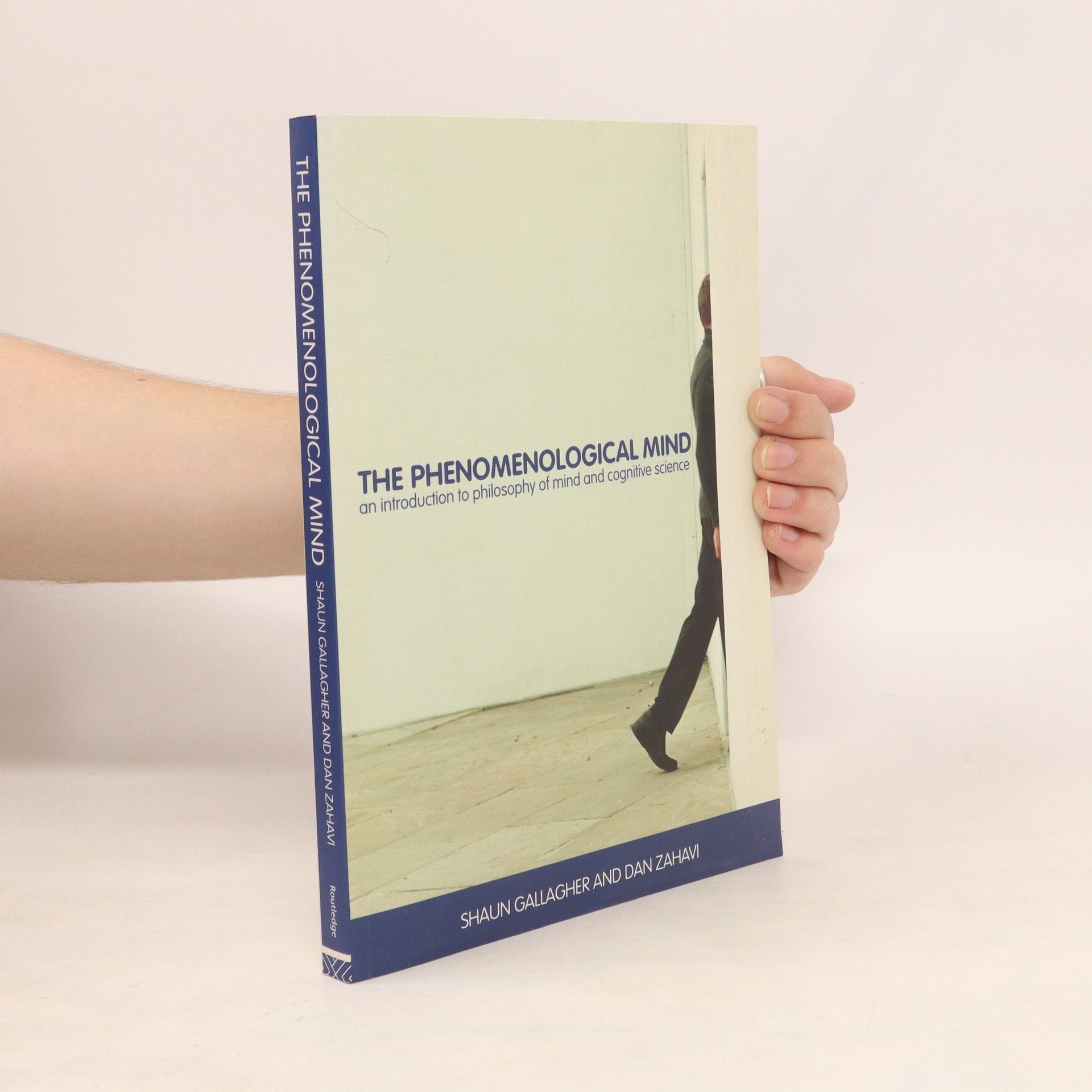Die Phänomenologie bildete eine der dominierenden philosophischen Strömungen des 20. Jahrhunderts. Dieses UTB bietet eine Einführung in die wesentlichen phänomenologischen Begriffe und Analysen, die zum Verständnis Husserls, Heideggers, Merleau-Pontys und anderer Denker notwendig sind. Der Band stellt die Hauptthemen phänomenologischen Philosophierens dar und erläutert seine aktuelle Relevanz für die Human- und Gesellschaftswissenschaften.
Dan Zahavi Bücher





The Phenomenological Mind
- 294 Seiten
- 11 Lesestunden
This exploration of phenomenology serves as an ideal introduction to essential concepts in the fields of cognitive science and philosophy of mind. Renowned for its clarity, the book has been translated into eight languages, making its insights accessible to a global audience. It stands out as a significant contribution to understanding human consciousness and perception, appealing to both newcomers and those familiar with the subject.
Phenomenology: The Basics
- 168 Seiten
- 6 Lesestunden
A concise and engaging introduction to one of the dominant philosophical movements of the 20th century. This book provides an introduction to the essential phenomenological concepts that are crucial for understanding great thinkers such as Husserl, Heidegger, and Merleau-Ponty.
The phenomenological mind : an introduction to philosophy of mind and cognitive science
- 244 Seiten
- 9 Lesestunden
The Phenomenological Mind is the first book to properly introduce fundamental questions about the mind from the perspective of phenomenology. Key questions and topics covered include:What is phenomenology? naturalizing phenomenology and the empirical cognitive sciences phenomenology and consciousness consciousness and self-consciousness, including perception and action time and consciousness, including William James intentionality the embodied mind action knowledge of other minds situated and extended minds phenomenology and personal identityInteresting and important examples are used throughout, including phantom limb syndrome, blindsight and self-disorders in schizophrenia, making The Phenomenological Mind an ideal introduction to key concepts in phenomenology, cognitive science and philosophy of mind.
The Oxford Handbook of Contemporary Phenomenology
- 619 Seiten
- 22 Lesestunden
The Oxford Handbook of Contemporary Phenomenology presents twenty-eight essays by some of the leading figures in the field, and gives an authoritative overview of the type of work and range of topics found and discussed in contemporary phenomenology. The essays aim to articulate and develop original theoretical perspectives. Some of them are concerned with issues and questions typical and distinctive of phenomenological philosophy, while others address questions familiar to analytic philosophers, but do so with arguments and ideas taken from phenomenology. Some offer detailed analyses of concrete phenomena; others take a more comprehensive perspective and seek to outline and motivate the future direction of phenomenology.The handbook will be a rich source of insight and stimulation for philosophers, students of philosophy, and for people working in other disciplines of the humanities, social sciences, and sciences, who are interested in the state of phenomenology today. It is the definitive guide to what is currently going on in phenomenology. It includes discussions of such diverse topics as intentionality, embodiment, perception, naturalism, temporality, self-consciousness, language, knowledge, ethics, politics, art and religion, and will make it clear that phenomenology, far from being a tradition of the past, is alive and in a position to make valuable contributions to contemporary thought.